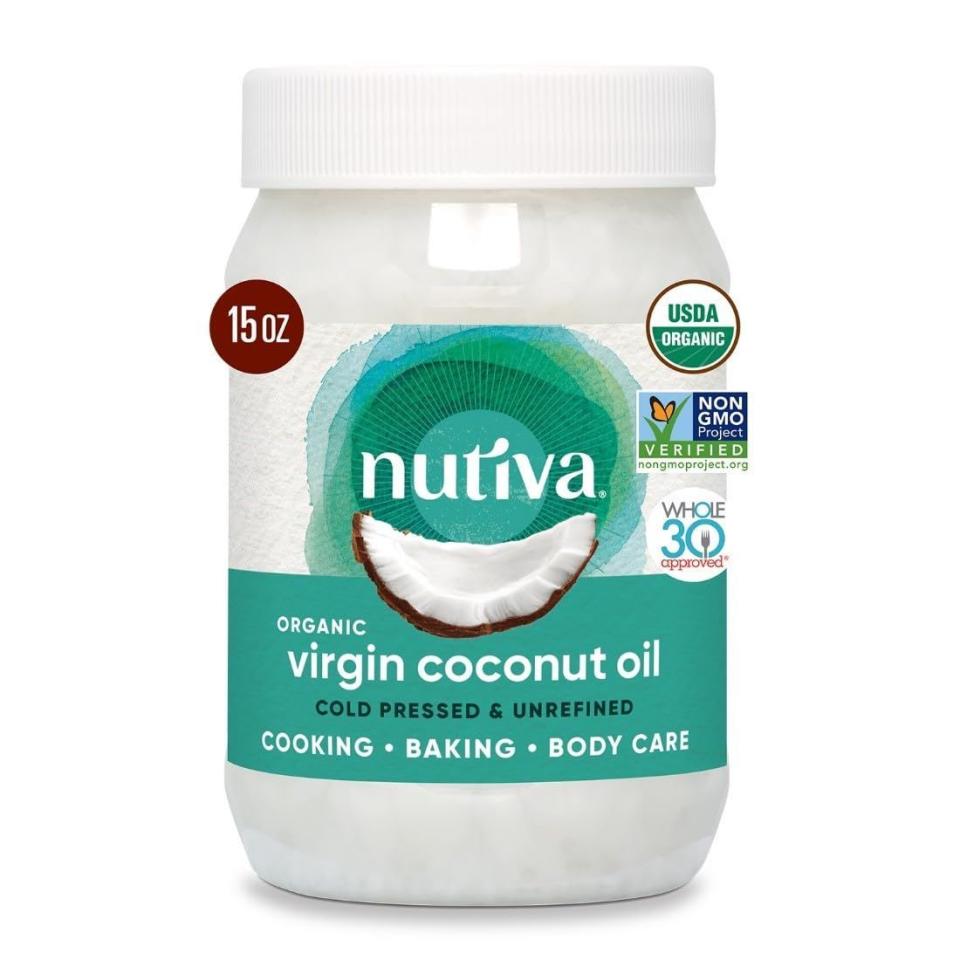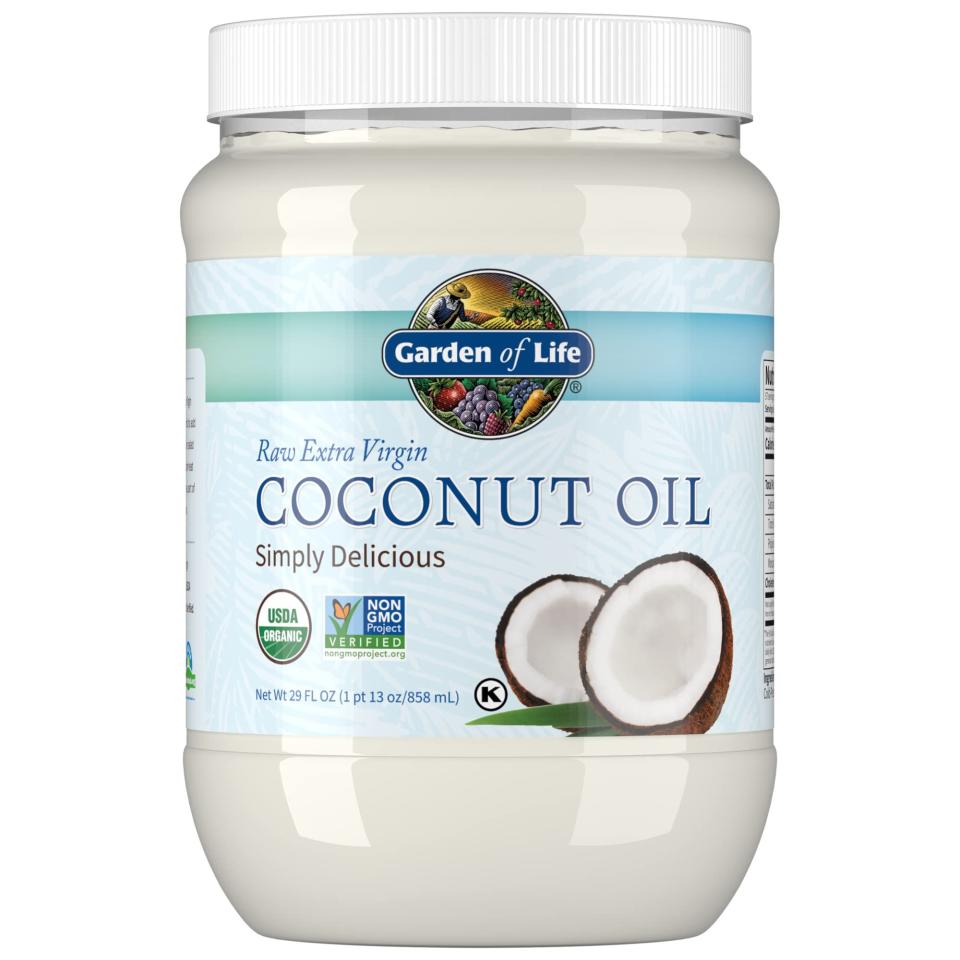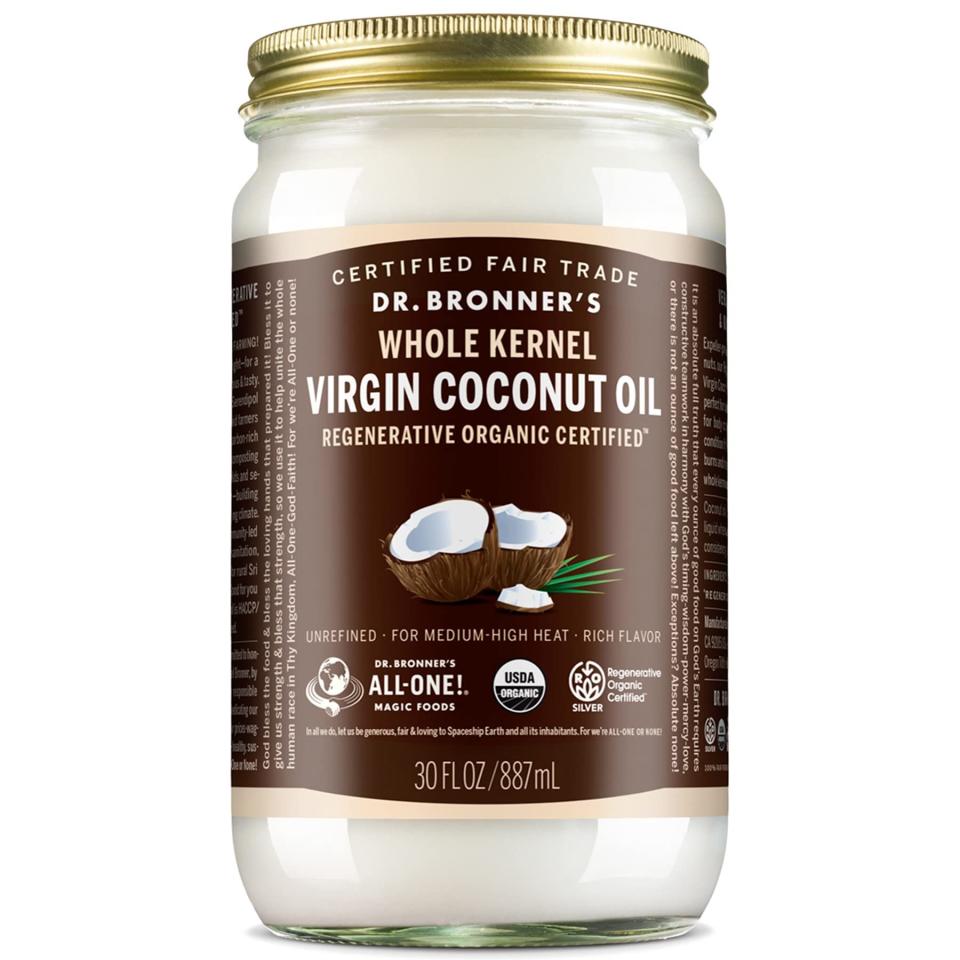Does Oil Pulling for Teeth Actually Work? Dentists Explain the Buzzy Practice
"Hearst Magazines and Yahoo may earn commission or revenue on some items through these links."
[table-of-contents] stripped
Oil pulling is an age-old Ayurvedic dental technique that has garnered attention for its many purported health benefits, with some claiming that swishing on coconut oil can help treat cavities, get rid of bad breath, and even whiten teeth. But is it safe, and effective?
When it comes to maintaining proper oral health, the focus tends to be on brushing, flossing, and using mouthwash. But is oil pulling a worthwhile addition to these dentist-approved steps?
“The process is thought to help remove harmful bacteria and plaque from the mouth,” explains Michael J. Wei, D.D.S., Manhattan cosmetic dentist and smile specialist. “Potentially improving overall oral health” in the process.
Meet the experts: Michael J. Wei, D.D.S., Manhattan cosmetic dentist and smile specialist; and Jossen Gastelum, D.M.D., general and cosmetic dentist based in Scottsdale, AZ
Ahead, dentists share exactly what oil pulling is, the potential benefits of adding the practice to your mouth health routine, and exactly how to oil pull.
What is oil pulling?
Oil pulling is an “ancient Ayurvedic dental technique” that involves swishing oil around in the mouth, which is thought to help cleanse and detoxify the teeth and gums, explains Wei.
The most common oil used for oil pulling is coconut oil, but other edible oils like sesame or sunflower oil can also be used. “The oil is believed to attract and trap bacteria, toxins, and other particles in the mouth,” Wei says. “As you swish the oil around, it mixes with your saliva and turns thin and white.”
Oil pulling benefits
Though there is not much science to back up oil pulling dental health claims, according to Wei, some of the purported benefits may include:
Improved oral health
Since oil pulling is thought to aid in removing harmful bacteria, plaque, and toxins from the mouth, the practice may contribute to an improvement in overall oral health.
Fresher breath
By removing harmful bacteria from the mouth, oil pulling may potentially reduce bad breath as odor-causing bacteria are decreased.
Whiter teeth
There is anecdotal evidence that oil pulling may help whiten teeth naturally and remove stains from the surface of the teeth, but further research is needed to confirm these claims.
Reduction of oral health issues
Oil pulling is believed to help with conditions like gum disease, cavities, and sensitive teeth through its purported ability to remove plaque, bacteria, and toxins, but more research is needed in this area.
Organic Coconut Oil

Organic Coconut Oil
Amazon
$7.74
NutivaCoconut Oil

Coconut Oil
amazon.com
$20.39
Garden of LifeOrganic Virgin Coconut Oil

Organic Virgin Coconut Oil
amazon.com
$30.39
Dr. Bronner'sOil-pulling side effects
The risks of oil pulling are generally minimal, says Jossen Gastelum, D.M.D., general and cosmetic dentist based in Scottsdale, AZ, who notes that the side effects mostly involve potentially swallowing the oil, which could cause an upset stomach. He notes that some may also develop a sore jaw from vigorously swishing for the recommended time frame of about 20 minutes.
“I’m open to the practice, but the issue in my opinion is that in order to get the maximum intended benefits, you would have to swish for about 20 minutes continuously,” Gastelum says. “This does not fit into most modern-day patients’ routines.”
How to oil pull
For the best results, Wei suggests oil pulling in the morning before eating and brushing your teeth. Here are his tips to make the most of the practice:
Choose your oil. Begin by choosing a “high-quality oil,” says Wei, who recommends coconut oil for its “pleasant taste and antimicrobial properties.” Other popular oils include sesame oil, olive oil, and sunflower oil. For the best results, Wei suggests choosing an organic, unrefined oil.
Swish the oil around your mouth. Using about 1 tbsp of the oil of your choice, begin swishing the oil around in your mouth for about 15 to 20 minutes. “Do not gargle or swallow the oil, as it will be full of bacteria and toxins from your mouth,” Wei advises. Then, spit the oil into your trash can (and not a sink—to avoid clogging pipes).
Rinse and brush. After spitting out the oil, Wei suggests rinsing your mouth with warm water to remove oil residue, followed by brushing your teeth and continuing the rest of your oral hygiene routine.
Should I try oil pulling?
Ultimately, it’s up to you, as long as you maintain your oral hygiene. “It is important to note that oil pulling should not replace regular brushing and flossing, but can be used as a supplementary practice for maintaining optimal oral hygiene,” Wei explains.
It’s also important to consider the type of oil you use. If you know you have an intolerance to a specific oil, then it may be best to try an alternative or forego the practice altogether.
“As always, if you have any medical conditions, consult first with your physician before starting any new health routine,” Gastelum adds.
Does oil pulling work?
Currently, there is not enough evidence to support anecdotal claims that the practice benefits dental health.
It’s “also important to note that the American Dental Association (ADA) does not currently recommend the practice ‘due to the lack of scientific evidence,’ meaning that there are not enough reliable long-term studies showing the benefits,” Gastelum explains. While it may still offer dental health benefits, it is not widely agreed upon that oil pulling delivers all of its purported benefits, according to the ADA.
You Might Also Like

